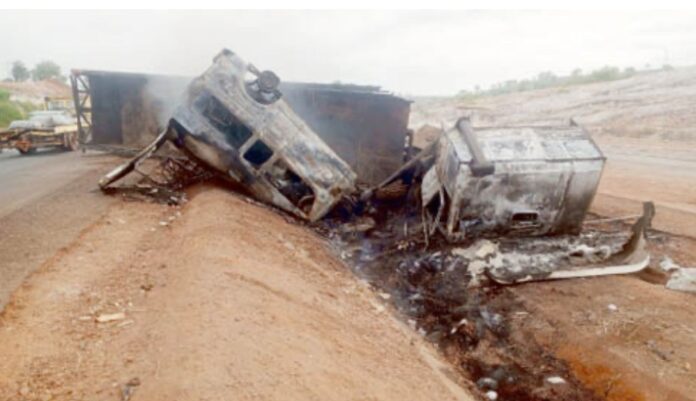A tragic sequence of road accidents along the Gada-Biyu axis of the Abuja-Lokoja highway has claimed the lives of six passengers and 11 cows, drawing renewed attention to the growing concerns surrounding road safety, infrastructure decay, and transport regulation in Nigeria.
The multiple crashes, reported over the weekend, highlight the persistent dangers faced by commuters and transporters along this critical inter-state corridor. While investigations into the specific causes are ongoing, eyewitness accounts and emergency response officials point to factors such as over-speeding, poor visibility, and inadequate road infrastructure as likely contributors.
This incident is not an isolated occurrence. The Abuja-Lokoja highway has witnessed frequent fatalities in recent years, underscoring systemic challenges in the nation’s road management framework. With high vehicular traffic — including heavy-duty trucks, passenger buses, and livestock transporters — the road remains vulnerable to both human and infrastructural failings.
Public safety advocates and transport analysts are calling for urgent intervention, including the repair and dualization of critical stretches, enhanced traffic enforcement, and sustained public awareness campaigns targeting driver behavior.
The Federal Road Safety Corps (FRSC) has reiterated its commitment to reducing road traffic crashes, but experts argue that without long-term investment in modern road infrastructure and intelligent transport systems, tragedies like this will continue to plague major highways.
This latest accident serves as a grim reminder that lives are not only lost to fate — but also to policy inertia.










